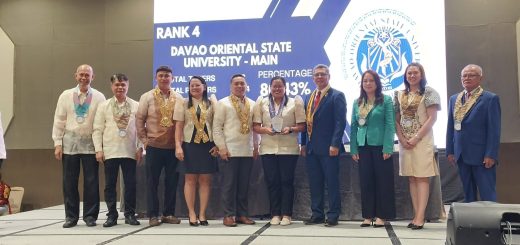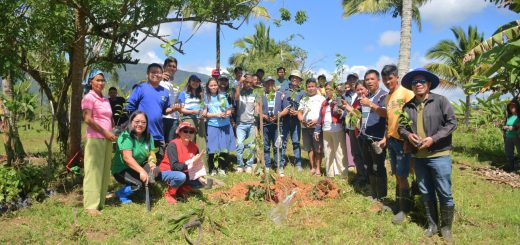DOrSU – UResCom Secures P5 Million DOST Grant for Norovirus Detection Project
by DOrSU-PIO · Published · Updated
Davao Oriental State University’s (DOrSU) University Research Complex (UResCom), through its Institute for Bioassay and Testing (I-BiT), has been awarded a P5 million research grant by the Department of Science and Technology – Philippine Council for Health Research and Development (DOST-PCHRD). The funding supports the development of a diagnostic tool for the rapid and accurate detection of Norovirus, a common cause of viral gastroenteritis, as part of DOST-PCHRD’s 2024 Call for Proposals.
Titled “Development of a Loop-Mediated Isothermal Amplification (LAMP) Assay for the Rapid Detection of Norovirus Against Viral Gastroenteritis to Protect Public Health and Well-Being,” the project aims to strengthen public health protection by creating a Filipino-made diagnostic kit. This cost-effective technology will be made accessible to hospitals and barangay health centers, especially in regions lacking advanced molecular biology facilities.
The research, endorsed by DOrSU President Dr. Roy G. Ponce on May 21, 2024, aligns with both DOST-PCHRD’s priority areas and the university’s commitment to advancing regenerative futures. Leading the project is Dr. Phoebe Nemenzo-Calica, Assistant Supervisor of I-BiT’s Microbiology Laboratory, alongside Dr. Roselyn Valles-Regino, Associate Supervisor at I-BiT, Dr. Joy Ann P. Santos, University Researcher and Scientist I at the Biological Research and Services Laboratory at UP Diliman, Prof. Maria Catherine B. Otero, a faculty member at the Davao Medical School Foundation, and Dr. Jonel P. Saludes, Director of the Center for Natural Drug Discovery and Development at the University of San Agustin. Their collaborative work will help address the pressing need for efficient disease detection in the Philippines.
The 2024 DOST call for proposals was highly competitive, with submissions evaluated for relevance, budget, and project feasibility. The UResCom team submitted their concept proposal on March 14, 2024, and received initial approval on April 1, 2024. The full-blown proposal, submitted on May 29, 2024, led to final confirmation of the funding approval on July 30, 2024.
In addition to the Norovirus detection kit, UResCom plans to expand its research capabilities by developing diagnostic tools for identifying pathogens in both agricultural and environmental samples. This initiative reflects DOrSU’s dedication to promoting healthier ecosystems and communities through effective disease management.






